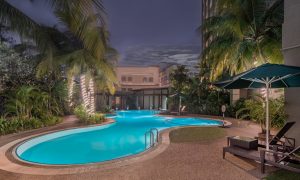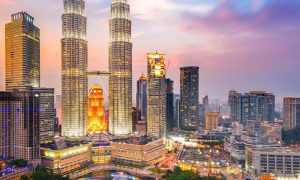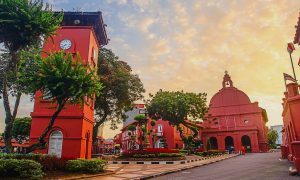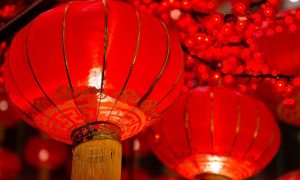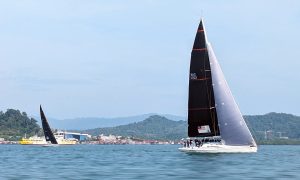DATUK PADDY BOWIE FIRST CAME TO SOUTHEAST ASIA IN 1954. 55 YEARS, TWO HUSBANDS AND THREE CHILDREN LATER, SHE IS STILL HERE, HAVING SEEN A LOT IN HER TIME.
It was with a sigh of relief that we turned away from 2011. We had endured one of the most trying periods in mankind’s history. We entered the new year with a new hope in Malaysia, a pressing desire for change and, thanks to a flurry of festivals, it is only now can we sit back and contemplate.
 First, let’s put today in context in what is now a fast-globalizing, interconnecting world. Nature’s fury does not let up. We are approaching the anniversary of the Fukushima nuclear disaster and yet another demonstration of Japanese resilience. In Australia there are again biblical floods and no Noah’s Ark in sight. New Zealand is barely recovering from two earthquakes in quick succession and killer tornadoes are ripping through the US.
First, let’s put today in context in what is now a fast-globalizing, interconnecting world. Nature’s fury does not let up. We are approaching the anniversary of the Fukushima nuclear disaster and yet another demonstration of Japanese resilience. In Australia there are again biblical floods and no Noah’s Ark in sight. New Zealand is barely recovering from two earthquakes in quick succession and killer tornadoes are ripping through the US.
The counterpart to nature wreaking havoc is the manmade disaster. The newcomer is the Eurozone, which is nearing crisis, while nearer home the Arab Spring has descended into the Arab Autumn and heading for the Arab Winter as the Arabs perfect the art of the protest. It’s hard to think it all started out with a call for democracy and freedom. Malaysians would do well to remember that we could count on democracy and freedom even before Independence, which was gained through gentlemanly negotiation by that consummate gentleman, Tunku Abdul Rahman. There were no placards screaming “Brits Go Home”; Tunku had been to the UK ahead of all of us to plead Malaysia’s case.
And now the economic centre of gravity in the world is moving inexorably from West to East. It has to skip over what would have been the first stop – the Middle East – and its destination is the new growth area of the Asia Pacific. The gateway, fortuitously for us, is the Straits of Malacca, otherwise small inconsequential Malaysia might have got overlooked. Although Malaysia has unique attributes, the first and foremost being its diversity. Our neighbours in South East Asia have always been havens for migrants, especially during the 19th Century. Chinese workers, fleeing the poverty, hardships and tyranny of the Warlords, arrived and are today’s millionaires; it didn’t take them long.
Another major influx came with the indentured labour from India for the rubber industry. It was the migrants who developed our two major industries, rubber and tin, based on our blessing of natural resources and commodities. The Indians created another legacy: isolated on rubber estates, they formed the largest work force in the land and this, together with their propensity to be contentious, led to our first trade unions. Education was the only escape from the rubber estate serfdom, but by then it was almost too late. Indians were labelled “trouble makers” so they hung up their shingles and practised as private consultants in Law and Medicine: industries they disproportionately dominate to this day.
Malaysia can boast another form of benign supremacy. The Malays (the “bumiputra” or “sons of the soil” in what after all was “land of the Malays”) looked to no other homeland and at first they were a simple majority, generously sharing power with the other races. This gave us 51 good years of egalitarian rule.
2008 changed all that. A two party system emerged with a healthy opposition acting as a democratic dividend, but Malays make up 60% of the mainland population. From a simple majority they have gone to supremacy, but seek to happily co-exist as 1Malaysia.
This idea will be mainly up to the youth: around 80% of Malaysians are now under 55. They do not remember the Emergency, the struggle for Independence, the 1969 race riots, nor indeed most of what I’ve written above. They will be more in sync with the ‘youthing’ of politics worldwide. Change indeed. But let me remind you of the snake. The snake sheds its outmoded skin with the prospect of a bright new shining one to replace it, but the interim is a painful and delicate process of change and reform. This is where we are now. But let us not forget that the head of the snake remains intact: this represents the Constitution and the institutional framework of our Parliamentary democracy, our civil service, our education system etc. These we proudly preserve.
One of these treasured legacies is our unique system of royalty. This is a topic which I mean to reserve for a later article, but it is sufficient to say that we are particularly aware of this asset as Sultan Halim takes the throne for the second time as Agong; the first of our royals ever able to claim this.
So Daulat Tuanku.
Source: The Expat April 2012 Issue
Get your free subscription and free delivery of The Expat Magazine.
This article has been edited for ExpatGoMalaysia.com
"ExpatGo welcomes and encourages comments, input, and divergent opinions. However, we kindly request that you use suitable language in your comments, and refrain from any sort of personal attack, hate speech, or disparaging rhetoric. Comments not in line with this are subject to removal from the site. "




